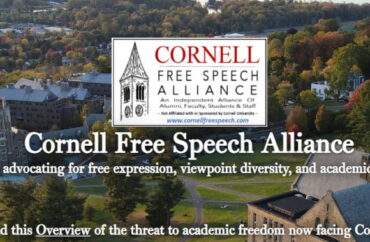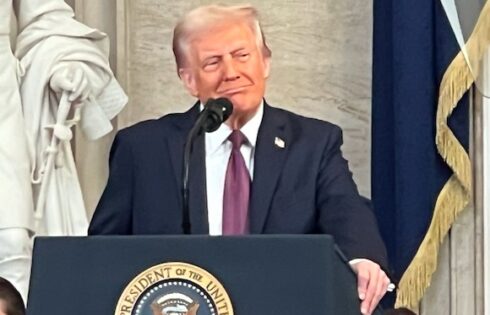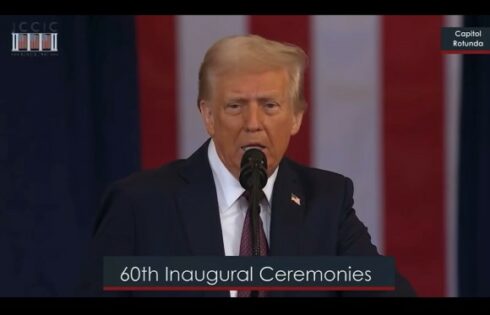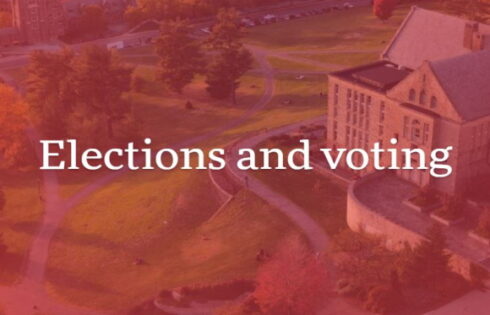
One of the most active and relentless alumni free speech groups in the nation — the Cornell Free Speech Alliance — this week dropped a figurative free speech-bomb on its alma mater, publishing a 100-page report calling for sweeping policy changes on campus.
The group reported its email listserv reaches “over 50,000 Cornellians,” mostly alumni, and it has an active leadership board that refuses to accept Cornell’s public-facing claims of supporting free speech, academic freedom and intellectual diversity.
The alliance’s report recommends 20 policy changes, including adding free speech training to freshman orientation, implementing the famous free speech Chicago Principles, eliminating DEI course requirements, removing its anonymous bias reporting system, and providing students robust due process.
The group, which includes some faculty and students, wants campus leadership to also state “words are not physical violence,” and make viewpoint diversity a “prominent objective.”
The alliance argues none of the 20 recommended policies exist at Cornell today. Cornell’s media relations division did not respond to three requests this week from The College Fix seeking comment on the recommendations or the alliance’s efforts.
The alliance plans to harness its massive email list as well as the relationships it has forged with many like-minded organizations, such as the Foundation for Individual Rights and Expression, Heterodox Academy, and the American Council of Trustees and Alumni, to continue its public-pressure campaign to force change, the report states.
The recommendations were also submitted to Cornell’s Board of Trustees, including its Chairman Kraig Kayser.
“The problems are real and they are serious,” stated alumnus David Ackerman in the report. “With an embedded monoculture on campus, the independent judgements of the Board of Trustees are now crucial. The Board must act to protect Cornell and its founding principles.”
While Cornell has yet to address the report publicly this week, campus leadership is well aware of the alliance, and in fact has sicced its attorneys on the group.
Over the last year, Cornell attorneys have sent correspondence to the alliance over its use of Cornell imagery as well as its means of obtaining and communicating with alumni emails. In response, the alliance hired an attorney and made a few tweaks, but has continued its work, a source familiar with the situation told The College Fix.
Amid pressure from the group, which frequently harnesses its newsletter to alert alumni about concerns on campus, Cornell declared that the 2023-24 academic year would feature a free expression theme, and created a Steering Committee for Free Expression.
Cornell President Martha Pollack this year will also serve on a new “Campus Call for Free Expression” group with 12 other college presidents nationwide, it was announced this week.
Such efforts have been dismissed as window dressing by watchdogs. For example, the alliance’s report points out that the Steering Committee for Free Expression has been stacked with DEI scholars.
“President Pollack has stated that she remains as committed to DEI as she is to academic freedom, even though various Cornell DEI policies directly conflict with academic freedom, viewpoint diversity, and free expression on campus,” Carl Neuss, chairman of the alliance, said in a news release announcing the report.
“Political purity screens and DEI litmus tests have no place in the policies of a university. During the Year of Free Speech, we hope Cornell focuses on serious policy reform instead of on non-substantive PR programs,” he said.
Cornell Law Professor William Jacobson, one of the report’s signatories, told The College Fix the recommendations are a “valiant attempt to correct the direction Cornell is heading with regard to free expression” and may help “make sure that the so-called ‘Year of Free Speech’ announced by the president is not just a public relations move.”
But he expressed reservations.
“I’m not hopeful that the recommendations will be embraced by the university, which has a deep leftist monoculture at the faculty and administrative level,” he said via email.
Asked about the university’s claims to support free speech, Jacobson said he will believe the university is serious about free expression when it rescinds its denunciations of outspoken professors.
Specifically, Jacobson pointed out that in 2020, students demanded a chemistry professor be fired for defending police, and administrators condemned his comments, as well as his own situation in which he was publicly censured by his law school dean following his critique of the Black Lives Matter movement.
Cornell also has 17 entries on The College Fix’s Campus Cancel Culture Database, including a highly publicized incident in which conservative author Ann Coulter was shouted down in 2022.
Neuss, in an email to The College Fix, said alliance members have determined there are discriminatory faculty hiring practices that screen out otherwise well-qualified faculty applicants based on “racial identity” and as well as personal, political and social beliefs — even in the “pure sciences.”
Another major concern is Cornell’s bias reporting system, which he said lacks due process for faculty and students and allows “anonymous” reporting that can be used to make “character attacks” on members of the Cornell community.
In addition, the administration is pushing “anti-racism” related training into all curricula, “which amounts to a major assault on academic freedom,” he said.
But the report suggests that despite the mountain it’s up against, the alliance’s goals can prevail. For example, due to enormous public pressure, Cornell in 2022 returned a bust of Abraham Lincoln that had been quietly removed to a prominent place on campus.
The group in its report calls on Cornell to respond to its recommendations and meet with its leadership. While the report does not threaten a lawsuit, it alludes to pressing legal concerns.
“Today’s assault on academic freedom and free speech … may also create potential legal, financial, and reputational jeopardy for the University,” the report states.
“Recent Supreme Court decisions on racial bias in student admissions, controversies associated with web-based ‘anti-bias reporting systems’ (such as those used at Cornell), abusive DEI training tactics, and discriminatory practices employed in faculty hiring can also create serious legal risks for the University.”
MORE: Cornell LGBTQ scholar-activists fight gendered terms and sex binary in STEM
IMAGE: Cornell Free Speech Alliance screenshot
Like The College Fix on Facebook / Follow us on Twitter






Please join the conversation about our stories on Facebook, Twitter, Instagram, Reddit, MeWe, Rumble, Gab, Minds and Gettr.